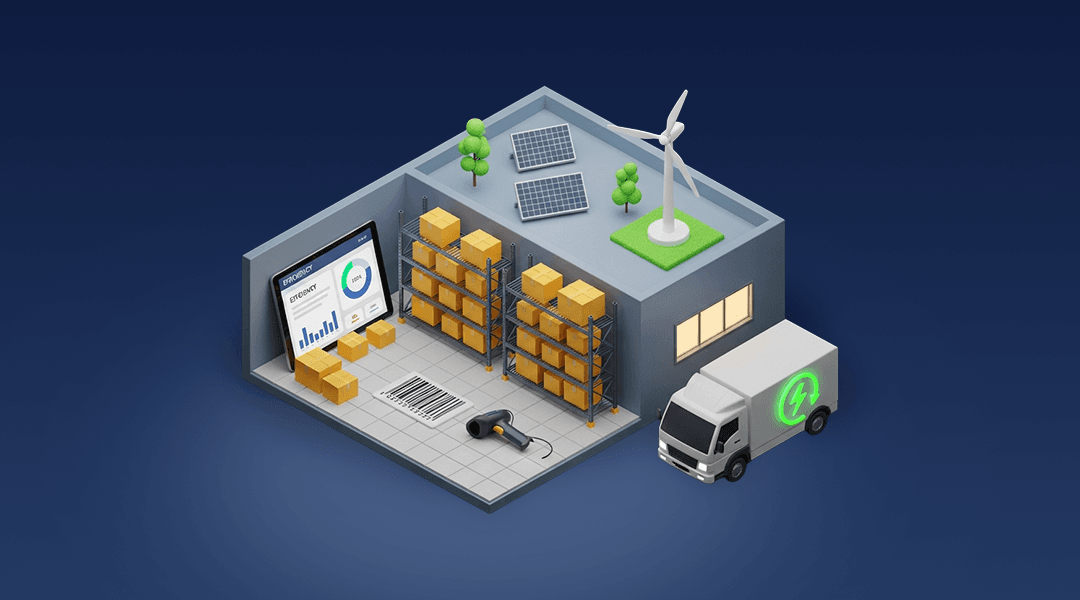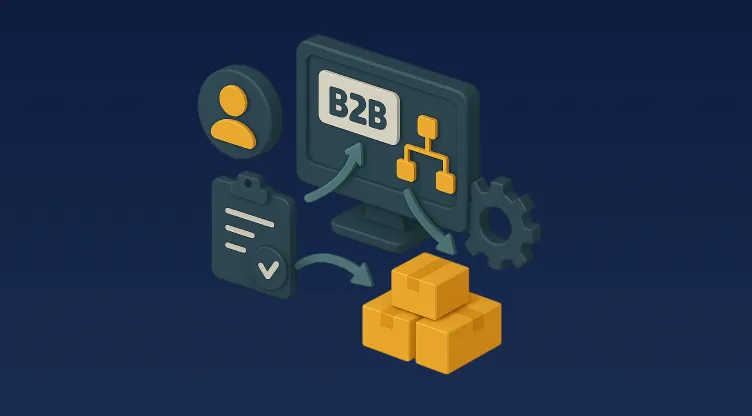Enhancing Transportation Services via Logistics Platform: Steps Toward Efficiency

Table of Contents
Summary Highlights
- Saudi Arabia's transportation and logistics sector is vital to economic growth and achieving Vision 2030 goals.
- Integration of digital logistics platforms is central to expanding land and sea transport services.
- Airlines, ports, and infrastructure play pivotal roles in building a seamless logistics network.
- Sustainability and eco-friendly practices are being increasingly prioritised in infrastructure and transport.
- Customer experience is a major focus, with platforms like "Logisti" driving digital innovation.
- Regulatory compliance is managed through strict quality and safety standards.
- Data analytics is revolutionising decision-making and operational performance in logistics.
- Innovation, particularly through platforms like Logisti, is key to positioning the Kingdom as a logistics hub.
- Strategic policies are supporting infrastructure development and intercity transport enhancements.
Introduction to Transportation and Logistics
The transportation and logistics sector in the Kingdom of Saudi Arabia plays a critical role in supporting economic development and promoting sustainable growth. Various logistics platforms aim to integrate with one another to deliver comprehensive and efficient services to users, thereby enhancing operational efficiency and expanding services including land and sea transport. The sector’s goal is to provide high-quality transportation and logistics services, contributing to economic efficiency and improving citizens’ quality of life. Digital platforms also seek to facilitate access to logistics services and optimize operations. The transportation and logistics sector is one of the key pillars in achieving Saudi Vision 2030, by boosting and diversifying economic opportunities in target sectors. Through the development of core infrastructure, provision of integrated services, and effective logistics operations management, the sector strives to meet the needs of businesses, consumers, and beneficiaries alike—strengthening the Kingdom’s position as a global logistics hub. The development of infrastructure and services aims to improve efficiency and reduce human errors.
The Transportation and Logistics Ecosystem
The transportation and logistics ecosystem in Saudi Arabia provides integrated and efficient transport and logistics services. Airlines play a vital role in improving the logistics network’s efficiency by facilitating the movement of goods and passengers. The ecosystem encompasses an extensive network of roads, bridges, ports, and airways, making it easier to move goods and people between regions. Ports serve a pivotal function in the logistics system, particularly through the development of container terminals at Jeddah Islamic Port in partnership with the private sector. The ecosystem also offers advanced logistics services, including storage, distribution, and tailored logistics solutions for stakeholders. Services also include license management, car rental, and maritime transport. Through this integrated ecosystem, Saudi Arabia aims to improve user experience and elevate the efficiency of transport and shipping operations, thereby contributing to economic growth and the advancement of various sectors. The Kingdom also focuses on enhancing shipping capabilities through reliable and seamless logistics services—such as real-time tracking, competitive delivery options, and strategic locations for logistics service centers inside and outside the country.
Sustainability in Transportation
Sustainability in transportation is a key focus for Saudi Arabia’s transportation and logistics ecosystem. To improve the sector’s efficiency and quality, the Kingdom seeks to enhance infrastructure and bolster logistics services, saving time and effort through automation and modern technologies. Sustainable transport aims to reduce environmental impact and improve resource efficiency in the transportation sector. The Transport General Authority plays a central role in promoting sustainability by enforcing strict standards and encouraging the use of eco-friendly transport options. Logistics services in Saudi Arabia present opportunities to improve transport efficiency and reduce environmental costs through modern technologies and infrastructure enhancements. These initiatives aim to balance economic growth with environmental protection, positioning the Kingdom as a leading destination in transportation and logistics.
Customer Experience in Logistics Services
Customer experience in logistics is one of the most influential factors in customer satisfaction and loyalty toward transport and logistics companies. The "Logisti" platform offers integrated digital services that enhance customer experience and simplify transport and logistics operations in Saudi Arabia. Service quality and delivery speed are among the top factors impacting logistics customer experience, with time being a decisive element. The Transport General Authority is working to elevate service quality and customer experience by applying strict quality standards and promoting innovation in the transportation and logistics sectors. These efforts aim to offer logistics services that meet customer expectations and foster loyalty and satisfaction.
Regulatory Compliance and Standards
Regulatory compliance is a critical aspect impacting the quality of logistics services in Saudi Arabia. The Transport General Authority provides a regulatory framework designed to enhance compliance with health and environmental standards within the transportation sector. Quality and safety standards are among the most important factors affecting logistics service quality. The Logisti platform facilitates compliance with regulatory standards and helps improve logistics service quality in the Kingdom. Through these efforts, Saudi Arabia aims to deliver transportation and logistics services that meet the highest international standards—reinforcing its status as a global logistics leader.
Data Analysis in Logistics
Data analysis is one of the most important tools used in logistics to enhance transportation efficiency and reduce costs. The Logisti platform offers data analytics services that help improve logistics service quality and transportation efficiency in Saudi Arabia. Data plays a significant role in logistics service quality. The Transport General Authority supports data use in the transport and logistics sectors to enhance service quality and operational efficiency. By leveraging data analysis, companies can improve their operations and make informed decisions to achieve strategic goals and drive growth in the market.
Innovation in Logistics Services
Saudi Arabia is a global logistics hub, striving to enhance the transport and logistics sector through continuous innovation and improvement. The Transport General Authority plays a pivotal role in developing infrastructure for land, sea, and air transport and logistics services. The Logisti platform provides transport and logistics services through a single window, contributing to improved quality of life and sustainable development in the Kingdom.
The Kingdom continues to develop the transport and logistics sector, enhance service efficiency, and provide advanced and effective land, sea, and air transport services. It aims to achieve Vision 2030, which envisions transforming the Kingdom into a global logistics hub and expanding economic opportunities across targeted sectors. The national transportation and logistics strategy focuses on improving logistics service efficiency, enhancing quality of life, and supporting sustainable development.
Express shipping services are among the key factors in enhancing customer experience, with the Kingdom’s broad delivery network offering various express delivery services to meet diverse customer needs. The Logisti platform improves quality through integration and coordination among stakeholders, enhancing operations and providing advanced and effective land, sea, and air transportation services.
Through these efforts, Saudi Arabia is working toward realizing Vision 2030 and strengthening its position as a global logistics hub. The Kingdom aims to foster innovation and continuous improvement in the transport and logistics sector, offering advanced services that contribute to sustainable development and improved quality of life for its citizens.
Successful Strategies
Saudi Arabia employs successful strategies to strengthen the transport and logistics sector, including infrastructure enhancement and logistics service development in Riyadh. The Council of Ministers makes key decisions to regulate and develop intercity transport services, contributing to infrastructure improvement and the adoption of global best practices. In 2019, the capacity gap at Abha International Airport was highlighted as part of expansion efforts. The strategy also includes converting the medical services unit into a profitable company through public-private partnerships. The aim is to establish the Kingdom as a global logistics hub by offering year-round high-quality, integrated transport and logistics services.
The strategy supports sector growth and leadership by facilitating business development, enhancing logistics services, and increasing the number of annual logistics operations. It is part of Saudi Arabia’s broader efforts to improve citizens’ quality of life through accessible and efficient transport and logistics services. To achieve the goals of Vision 2030, the national strategy focuses on building integrated infrastructure across land, sea, and air transport domains—supporting economic growth and job creation in the logistics sector. The strategy aims to improve service efficiency and quality, enhance user experience, and support sustainable development.
Frequently Asked Questions (FAQs)
1. Why is the transportation and logistics sector so critical to Saudi Arabia’s Vision 2030?
It supports economic diversification, enhances service quality, reduces reliance on oil, and aims to position the Kingdom as a global logistics hub.
2. What role does the 'Logisti' platform play in Saudi logistics operations?
It offers integrated digital logistics services that improve customer experience, regulatory compliance, data analysis, and service efficiency.
3. How is customer experience being improved in Saudi logistics?
Through strict quality standards, real-time tracking, fast delivery options, and platforms like Logisti that simplify and enhance services.
4. What are the key sustainability goals in Saudi logistics?
Reducing environmental impact, increasing resource efficiency, and promoting the use of eco-friendly transport technologies.
5. How does data analysis benefit the logistics industry?
It improves decision-making, operational efficiency, and enables proactive management of supply chain challenges.
6. Are there any innovations in infrastructure contributing to logistics growth?
Yes, including upgraded ports, roads, container terminals, and smart logistics hubs integrated with digital platforms.
7. What are some regulatory steps taken to ensure logistics service quality?
The Transport General Authority enforces health, safety, and environmental standards, supported by the Logisti platform for compliance.
8. How is express shipping changing customer expectations?
By offering faster and more reliable deliveries, improving customer satisfaction, and expanding reach through a robust delivery network.























